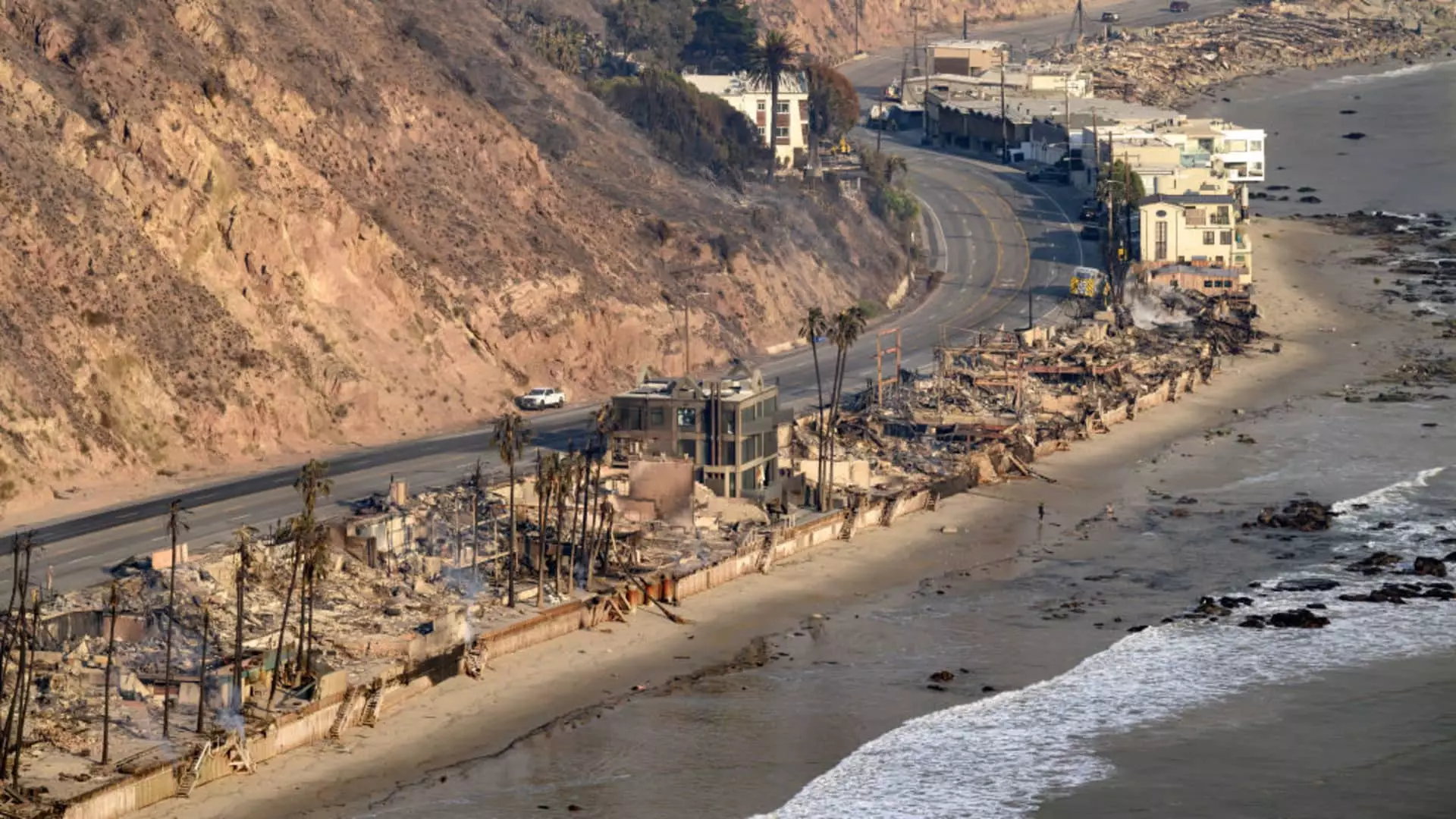The ramifications of natural disasters are multifaceted, affecting not only the immediate environment but also the industries reliant on that region, including the airline sector. Recently, California found itself in the grips of catastrophic wildfires, leading to widespread devastation in Los Angeles and surrounding areas. In light of this crisis, major airlines such as American, United, Southwest, JetBlue, and Delta have implemented travel waivers to accommodate travelers affected by the dire circumstances.
In the wake of the ongoing wildfires, airlines have exhibited a commendable commitment to customer service by extending flexibility to those holding tickets for flights to or from Los Angeles. American Airlines announced that travelers could change their bookings without incurring additional fees, and this policy applies not only to Los Angeles International Airport (LAX) but also to Hollywood Burbank, Ontario International, and John Wayne Airport in Orange County. This thoughtful approach indicates an understanding of the hardships faced by residents and travelers alike, as many faced power outages, water shortages, and even the loss of homes.
Other airlines, such as Southwest, have echoed these sentiments; they have stated that customers can rebook flights without penalty for up to 14 days from the original travel date. They have also allowed travelers the option to reroute to other Californian airports, demonstrating adaptability in a turbulent situation. This flexibility is crucial, not just for ensuring passenger convenience but also for sustaining the operational dynamics of airline networks impacted by the unfolding emergency.
Despite the ongoing wildfires threatening large swathes of Los Angeles, flight operations have largely remained unaffected at the region’s airports, according to reports from flight-tracking services like FlightAware. However, the local atmosphere is tense, as many residents are grappling with the physical and emotional toll of living under evacuation orders and dealing with compromised utilities. The mention of areas being deemed unsafe by local authorities, such as the Pacific Palisades, highlights the gravity of the situation, while simultaneously putting a dent in the public’s travel confidence.
Financially, airline operators are closely monitoring sales trends in the Los Angeles market, which serves as a pivotal hub for both business and leisure travel. Delta Air Lines recently reported a noticeable dip in flight bookings to the region, although they clarified that this decline didn’t originate from a spike in cancellations. This indicates a nuanced shift in consumer behavior rather than outright abandonment of travel plans. Glen Hauenstein, Delta’s president, acknowledged the potential disruptions caused by natural calamities while expressing hope that these fluctuations would not greatly impact quarterly earnings.
Interestingly, Hauenstein pointed out a potential rebound in travel demand following the resolution of the crisis, a phenomenon often observed in the aftermath of disasters. The need for reconstruction and visitations to affected areas can catalyze a surge in air travel, illustrating the resilience of both the local economy and the airline industry.
In assessing the long-term implications of the wildfires on airlines, it appears that the industry may be preparing for a recovery phase, albeit with heightened sensitivity toward the effects of natural disasters. Past experiences with various calamities have shown that airlines adapt their strategies to emerging situations, aiming to balance operational viability with customer care. This dual focus is critical for fostering trust and loyalty among travelers, especially in areas prone to such crises.
Moving forward, the airline industry will likely continue to refine its approaches to managing travel during crises. The importance of understanding market dynamics and customer sentiment cannot be overstated, and airlines strive to find the delicate balance between operational efficiency and compassionate service.
The impact of the ongoing wildfires in Los Angeles has resulted in significant challenges for both travelers and airlines. The proactive measures taken by major carriers illustrate a commitment to customer service in crisis, while the fluctuating travel patterns reflect broader economic considerations. As the situation evolves, both the local community and airlines will need to remain adaptable, recognizing the interconnectedness of disaster recovery and consumer behavior in the realm of travel.

